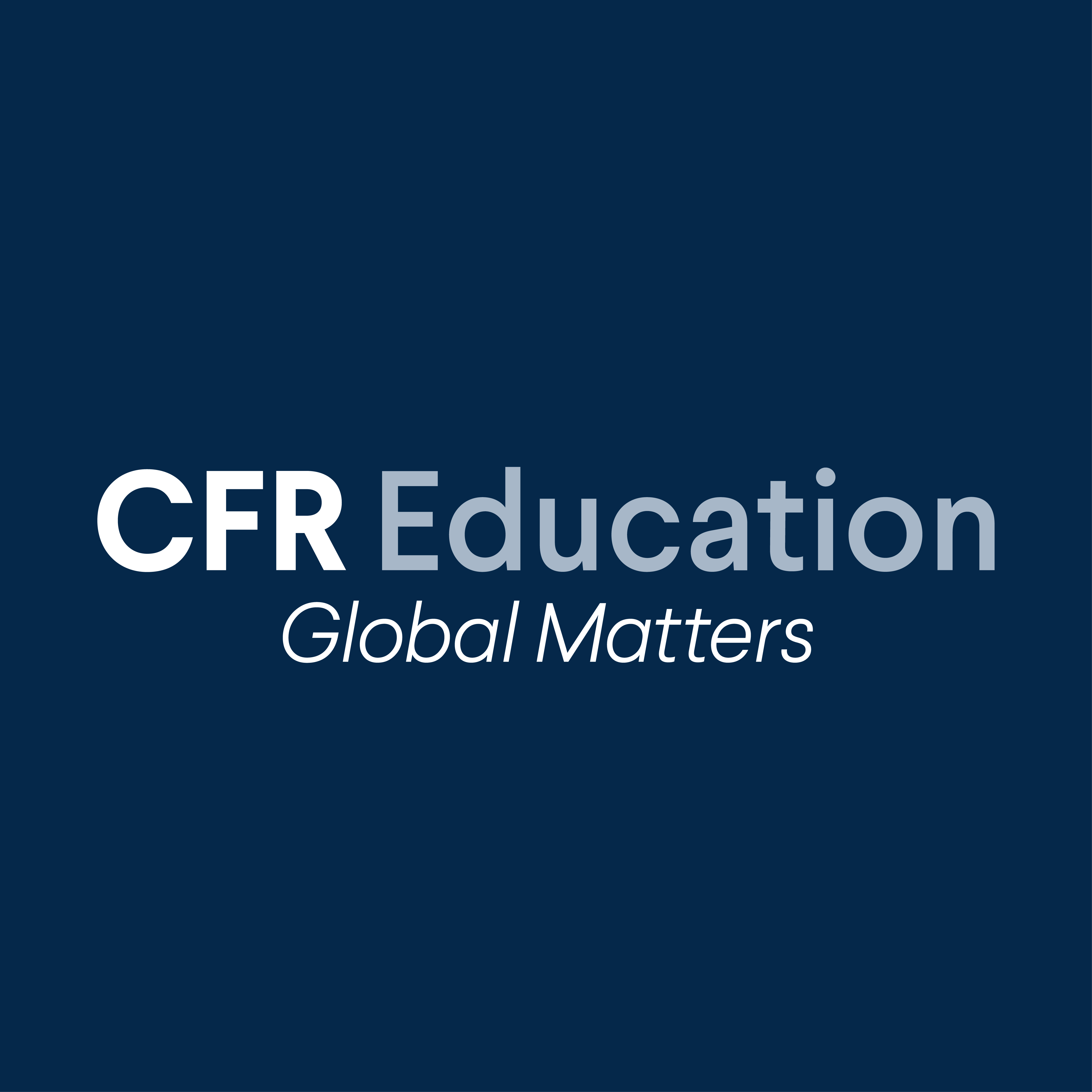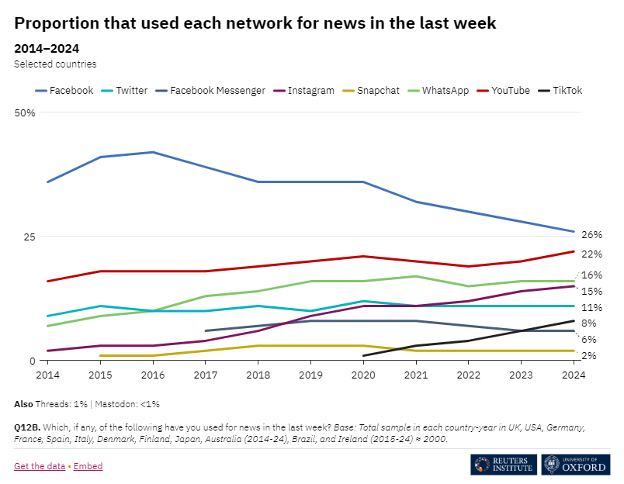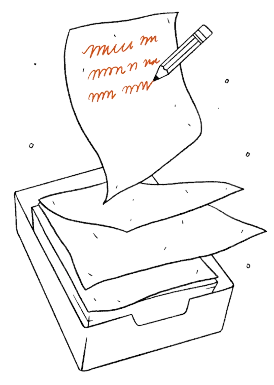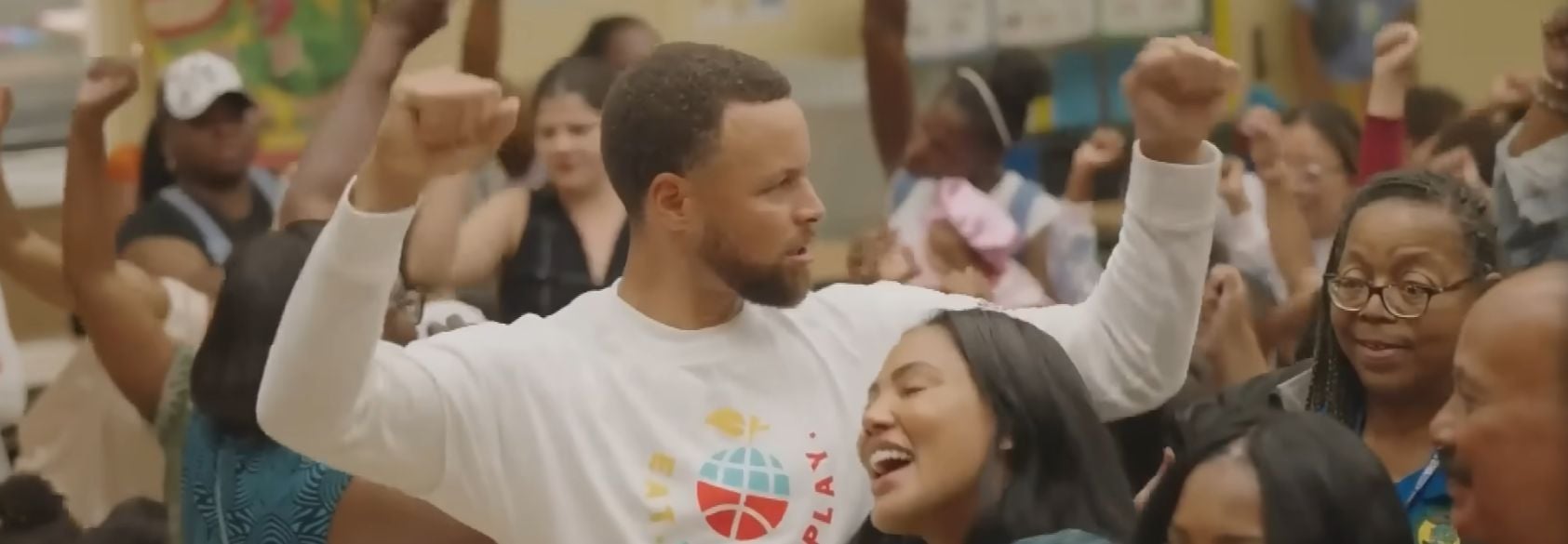The latest survey from the Reuters Institute’s digital news report shows that in many countries the news media is “increasingly challenged by rising mis- and disinformation, low trust, attacks by politicians and an uncertain business environment.” Big-tech platforms are deprioritizing news, artificial intelligence is injecting new uncertainties, and young people are reporting “news fatigue.”
The United States reports among the highest levels of concern about what is real and what is “fake news” online, at 72 percent, with a surge in the run-up to the presidential elections this November in manipulated images, deepfakes and highly subjective personalized commentary.

Informed citizens, armed with evidence-based explanations and insights from experts at professional media organizations, think tanks, and in academia are an essential backstop for protecting economic prosperity and guarding against democratic backsliding and erosion of the rule of law.
Our message to educational policymakers, school leaders, teachers and parents is that the need to combat the spread of mis- and disinformation is being addressed. A growing number of free resources have been developed, not least by the Council on Foreign Relations (CFR) through its educational offerings, the Financial Times through its free high school access program, and through a growing number of jointly developed resources, including a library of learning journeys like this one that explains how trade works. For students who are confused about how to evaluate online information, the Digital Inquiry Group’s Civic Online Reasoning curriculum teaches students lateral reading skills to help them identify mis- and disinformation. These resources provide accurate, accessible, authoritative explanations of today’s most pressing issues.

Equipping the next generation with global literacy will help them compete in an increasingly international and competitive workforce, engage in productive civic discourse, discuss and advocate for effective policies, and vote for public officials who support those policies. Building global literacy can also help diminish inequality by providing citizens in lesser-served communities with a foundational understanding of the many ways global issues impact their communities, in turn enabling them to engage in informed discussion and to take action.
What goes on outside a country is enormously important for what happens inside. Today’s interdependent global economy and geopolitical landscape connect a nation’s interests more than ever to the actions and interests of others. It is neither possible nor desirable for a country to isolate itself from the accelerating flows of people, ideas, viruses, goods, greenhouse gases, weapons, dollars, and so much more. Linking the global to the local and the local to the global helps make this point. National security and economic prosperity depend on the next generation understanding what is taking place around the world, why it is taking place and how it will affect their lives.

There is a need for content that provides a foundational understanding of contemporary global issues, the relationship between domestic and foreign policy, the forms of government that shape policies, international institutions and global governance, forces related to nationalism, sovereignty and self-determination, and the drivers and effects of worldwide conflict. It will also require students’ basic understanding of the geopolitical, political, economic, historical and social trends that shape the world, and the approaches and tools of foreign policy available to respond to both long-standing and rising global challenges.
These are precisely the topics around which the CFR Education and the Financial Times (FT) are developing learning resources. Through reading FT, including explainers, videos, podcasts, games, and selections picked by expert teachers in the classroom with accompanying questions, students and classes can receive the latest high-quality information and context as well as ways to integrate it into the curriculum. CFR Education’s videos, simulations, timelines, companion teaching resources, events and more tap into the deep knowledge of its experts. Through continuing professional development webinars and other events, we hope to build communities committed to bolstering global literacy and to further enriching these offerings.
With the emergence and increased adoption of high-quality, barrier-free educational resources, educators have more choices than ever to help them develop classroom materials and activities to ensure the current and future generations of students are engaged and equipped to fully participate in the challenges ahead. “It's very important for young people to learn about the world because at least in the U.S., it's a very diverse place,” says Bellody, a New York City student. “To be able to work together and coexist, you need to have some understanding of others’ values and culture."

About the Authors



















